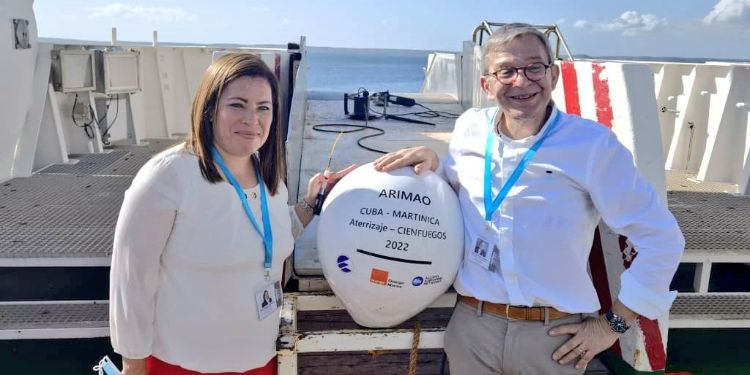Over the past weekend, the Colombian Foreign Ministry reported that it filed a humanitarian visa application for the relatives of Paula Andrea Durán, a 27-year-old woman from Huila who migrated in 2022 and who was diagnosed with stomach and brain cancer while pregnant with her third child.
The case became known after the young woman’s husband started a campaign on social networks so that the governments of Colombia and the United States They will grant a humanitarian visa to Paula Andrea’s family so that they can travel soon to the North American country to accompany them, since the doctors assure that her cancer has metastasized, since it has invaded other organs and is now incurable.
(US Embassy makes recommendation for visa application).
Faced with this case, the Foreign Ministry appealed to the request of the figure of ‘Humanitarian or Significant Public Benefit Parole for persons outside the United States’which is granted by the US embassy in special cases.
Since he heard about the case of the Vega Durán family and on direct instructions from the Chancellor @AlvaroLeyva, @CancilleriaCol has been in permanent contact with Mr. Sergio Vega, who has been provided with the necessary accompaniment through the Dir. of Consular Affairs
– Colombia Foreign Ministry (@CancilleriaCol) January 9, 2023
“The Ministry of Foreign Relations reports that, since it learned of the case of the Vega Durán family and on direct instructions from Foreign Minister Álvaro Leyva Durán, it has been in permanent contact with Mr. Sergio Vega, who has been provided with the necessary accompaniment. through the Directorate of Consular Affairs” said the Foreign Ministry.
This permission or humanitarian visa it is granted temporarily for urgent humanitarian reasons or significant public benefit such as medical treatment, organ donation, participation in US legal proceedings, attendance at a family funeral, assistance to minors, or in the case of Paula Andrea, for “caring for or providing support to a family member who is seriously or terminally ill and is in the United States.”
(This is how the immigration relief that the Government asked the US works).
“In some cases, urgent humanitarian reasons may be based on a beneficiary’s need to provide physical or emotional support to a family member who is in the United States. Some examples include obtaining temporary parole for a beneficiary to come to the United States to help a family member who: has a serious medical condition; or is terminally ill (such as someone who has an advanced medical condition and is receiving hospice care),” indicates the American Embassy.
To apply for this permit, those interested must provide medical evidence of the need for physical and emotional support.
This includes documentation from a doctor or medical facility in the United States that provides a medical diagnosis and prognosis that the patient in the United States needs care, as well as detailed information about the type of care needed, including the need for and frequency of care and whether a caregiver is required before medical treatment begins.
In addition, a list of all family members who are in the United States and why they cannot care for the person receiving medical treatment must be attached.
In addition, they must submit a detailed statement explaining why other alternatives, such as hiring a caregiver, are not reasonable.
Civil documents that demonstrate the relationship between the relative who has a serious or terminal illness and the beneficiary must also be registered with the embassy.
If applicable, documentation of the relative’s end-stage condition, such as a letter from a physician or hospice indicating the diagnosis and medical prognosis.
To find out in which cases it applies, the embassy has available a Guide on Evidence for Certain Types of Petitions for Humanitarian Permit or Significant Public Benefits that can be consulted here.
BRIEFCASE
















